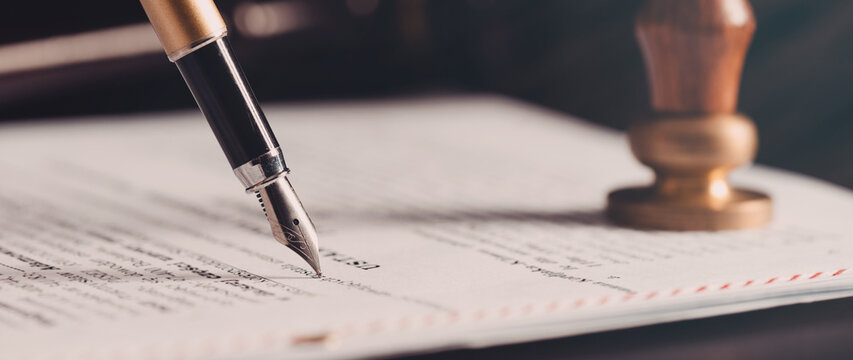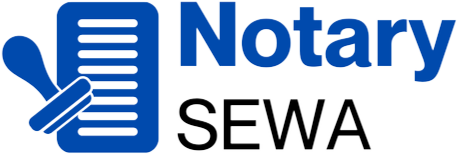
Understanding the Importance of Documents Notarization
Notarization plays a crucial role in verifying and legalizing sensitive documents in Nepal. Whether for personal, business, or legal purposes, ensuring document authenticity through notarization prevents fraud, enhances credibility, and makes documents legally recognized. If you need to authenticate documents for official use, understanding the notarization process and its benefits is essential.
What is Documents Notarization?
Document notarization is the process of verifying the authenticity of documents and the identity of signatories through a licensed notary public. In Nepal, notarized documents are legally accepted by government offices, courts, embassies, and financial institutions. The Notary Public Act, 2063 (2006) governs notarization services in Nepal, ensuring standardized procedures and credibility.
Key Functions of Notarization:
- Confirms identity verification of the signer
- Ensures documents are signed willingly and knowingly
- Prevents forgery and fraud
- Provides legal validity to sensitive documents
- Facilitates international recognition of Nepalese documents
Explore more on the notarization process here.
Why is Notarization Necessary for Legalizing Sensitive Documents?
Certain documents require legal validation before they are accepted by official entities. Notarization ensures that these documents meet legal requirements and are certified as authentic.
Sensitive Documents That Require Notarization in Nepal:
- Legal & Court Documents:
- Affidavits & sworn statements (Learn more)
- Power of attorney (More details)
- Wills and testaments (Read about notarization of wills)
- Court documents (Legal insights)
- Business & Financial Documents:
- Business contracts (Why it matters)
- Loan & mortgage agreements (Understanding notarization)
- Property valuation reports (Legal validation explained)
- International & Immigration Documents:
- Visa & immigration documents (Certification importance)
- Marriage certificates for foreign recognition (Translation & notarization)
- Apostille & MOFA attestation (Government certification)
How Notarization Prevents Document Fraud
Fraudulent documents can lead to legal complications, financial losses, and reputational damage. Notarization serves as a safeguard against document forgery, identity theft, and unauthorized alterations.
Ways Notarization Prevents Fraud:
- Identity Verification: Notaries confirm the signer’s identity through official documents (citizenship, passport, or driver’s license).
- Signature Authentication: Ensures that the signature is authentic and belongs to the rightful owner.
- Tamper-Proof Security: A notary’s official stamp and seal prevent unauthorized changes.
- Legal Accountability: Any false notarized document can result in legal penalties under Nepalese law.
Learn more about fraud prevention through notarization.
The Process of Documents Notarization in Nepal
To notarize a document, follow these steps:
- Identify the Document Type: Ensure it requires notarization.
- Visit a Notary Public Office: Locate an authorized notary public in Nepal (Find one near you).
- Verify Your Identity: Carry a valid ID (citizenship card, passport, or driving license).
- Sign the Document in Front of a Notary: The notary will witness the signature.
- Receive the Notarized Document: It will be stamped and sealed, making it legally valid.
Detailed guide on speeding up notarization.
The Difference Between Notarization, Apostille, and MOFA Attestation
Nepalese documents may require notarization, apostille, or MOFA attestation depending on where they will be used.
| Process | Purpose | Where it’s Required |
| Notarization | Confirms authenticity | Nepal & some foreign institutions |
| Apostille | International document validation | Hague Convention member countries |
| MOFA Attestation | Government authentication | Non-Hague countries |
Full guide on Apostille vs. Notarization.
When Do You Need a Notary in Nepal?
You may require notarization in the following situations:
- Applying for a visa, passport, or immigration process
- Buying, selling, or leasing real estate
- Signing business contracts or financial agreements
- Court case affidavits and sworn statements
- Estate planning such as wills, power of attorney, and trusts
More on legal scenarios needing notarization.
Find Reliable Notary Services in Nepal
For hassle-free and professional notarization services in Nepal, visit Notary Sewa at https://notarysewa.com. Their services include:
- Affidavits & sworn statements (Read more)
- Power of attorney notarization (Details)
- Translation of legal documents (Services)
- MOFA Attestation (Government recognition)
For quick notary public services near you, explore Notary Sewa’s full range of services.
Conclusion
Document notarization plays a pivotal role in legalizing sensitive documents in Nepal. Whether for personal, business, or legal matters, notarization ensures authenticity, prevents fraud, and makes documents legally binding. By understanding the notarization process and requirements, you can safeguard your documents and ensure seamless legal acceptance. If you need expert notarization services, Notary Sewa provides reliable and professional assistance across Nepal.
For further information, visit the official Notary Sewa website or explore more related services to ensure your legal documents are certified, authenticated, and legally valid.
